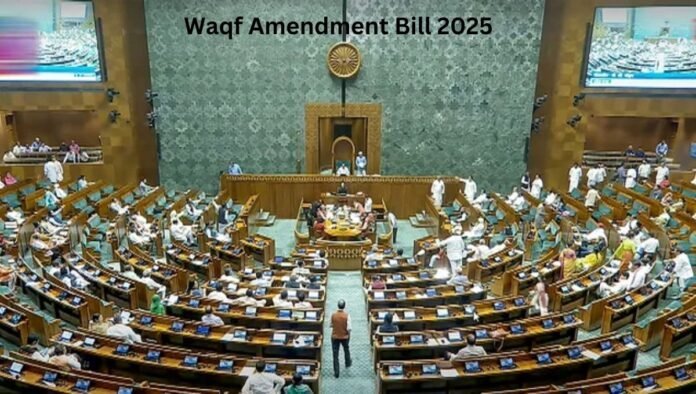Historic Change in Waqf Property Management
The Waqf Amendment Bill 2025 is a major step forward in managing religious properties in India. It responds to problems like poor leadership, lack of transparency, and mismanagement in current Waqf governance. The bill aims to fix these issues by making Waqf boards more open, accountable, and efficient, helping manage valuable religious and cultural properties better.
The Need for Change: Tackling Current Problems
The current Waqf system faces several issues that prevent effective property management, including:
- Weak leadership and unclear structures within Waqf boards.
- Financial mismanagement due to lack of transparency.
- Legal disputes over property rights. The Waqf Amendment Bill seeks to fix these problems by introducing clearer rules and processes.
What the Amendments Aim to Do
Key changes in the Waqf Amendment Bill include:
- Better financial reporting: Waqf boards will have to share financial details regularly to promote transparency.
- Improved governance: Restructuring Waqf boards to make them more efficient.
- Clear dispute resolution: Setting up systems to resolve conflicts and manage properties better. These changes are done to make the system more effective and reliable.
Also Read: Virender Sehwag and Wife Aarti Amid Divorce Rumors: Social Media Moves Spark Buzz.
The Journey of the Bill
The Waqf Amendment Bill has gone through a long process. After much debate, the Joint Parliamentary Committee (JPC) approved the bill, moving it forward. Public input and discussions were key in shaping the bill.
Understanding the Current Waqf System
The existing laws, including the Waqf Act of 1995, set out the rules for managing Waqf properties, but they are not always followed properly. This leads to mismanagement and disputes. Financial tracking is weak, and there is not enough oversight, allowing for corruption and poor management.
Looking at Real-life Examples
Some states have managed Waqf properties well, using strong governance systems to benefit communities. Others, however, have faced ongoing issues with mismanagement and legal disputes.
What the Waqf Amendment Bill Proposes
- More transparency: Waqf boards will need to submit annual reports to ensure proper use of funds.
- Better governance: Streamlining the Waqf board structure will improve decision-making and efficiency.
- Dispute resolution: Clear steps will be put in place to solve conflicts quickly and improve property management.
Also Read: Virender Sehwag and Wife Aarti Amid Divorce Rumors: Social Media Moves Spark Buzz.
The Role of the Joint Parliamentary Committee
The JPC played a crucial role in reviewing and improving the Waqf Amendment Bill. They considered input from community leaders and stakeholders to make the bill more effective and widely accepted.
Expected Impact of the Bill
- Benefits to communities: Better Waqf property management can improve services for communities, such as education and job creation.
- Legal impact: The changes are in line with the constitution, promoting transparency and good governance in managing religious properties.
Challenges and Opportunities Ahead
While the bill has great potential, there will be challenges in making sure it is properly implemented. Ongoing monitoring will be important to avoid repeating past mistakes.
Conclusion: A New Era for Waqf Management
The Waqf Amendment Bill 2025 marks a new chapter for managing religious properties in India. With more transparency, better governance, and effective conflict resolution, Waqf properties can serve communities more effectively.
For the bill to succeed, stakeholders must work together to make sure it is properly implemented and monitored. Future reforms could focus on training Waqf board members and engaging communities more, ensuring the principles of good governance are upheld.
By making these changes, India can set an example for managing religious properties responsibly and effectively.









